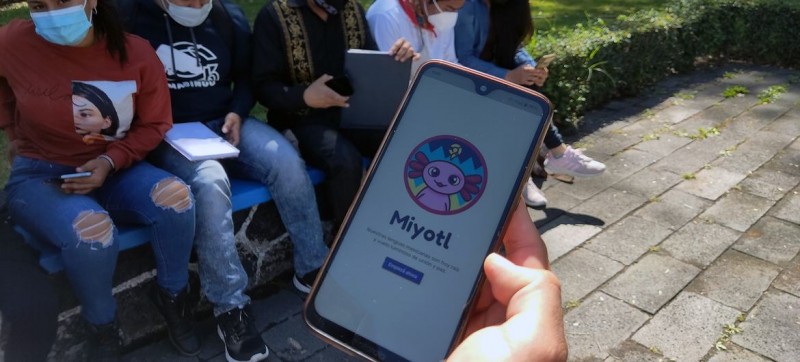Students and participants of the Miyotl Learn an Indigenous Language project interact with the Miyotl application at the Universidad Autónoma Chapingo headquarters on February 9, 2021. The head of the UN’s educational and cultural agency, UNESCO, has called for defending linguistic and cultural diversity in her message to mark International Mother Language Day on Monday. Audrey Azoulay, the UNESCO Director-General, highlighted how four out of 10 children worldwide do not have access to education in the language they speak or understand best, meaning the foundation for their learning is more fragile.
Finding and forgetting
“From the very first day of school, many schoolchildren have the ambivalent experience of discovering one language – and the world of ideas which comes with it – and forgetting another one: the language they have known since infancy,” she said.
“This distancing from the mother tongue affects us all, for linguistic diversity is a common good. And the protection of linguistic diversity is a duty.”
Ms. Azoulay stressed that every language has a certain rhythm, as well as a certain way of approaching things and thinking of them.
“Learning or forgetting a language is thus not merely about acquiring or losing a means of communication. It is about seeing an entire world either appear or fade away,” she said.
Technology for learning
For the United Nations, International Mother Language Day recognizes that languages play a vital role in development, in ensuring cultural diversity and intercultural dialogue.
The theme for this year’s commemoration is ‘Using technology for multilingual learning: Challenges and opportunities.’
Andriamiseza Noro, Education programme specialist at UNESCO, believes technology has the power to address some of the biggest challenges in education today.
This includes mother tongue-based multilingual learning, a key element for inclusion in education, which also fosters respect for diversity and a sense of interconnectedness between countries and peoples.
“Technology therefore makes it possible to be in a real situation, which we do not necessarily have with a book or a textbook,” she told UN News.
Ms. Noro has observed that young people tend to use technology outside the classroom. “And I feel like they learn a lot faster with these technologies. So that’s the potential of technology that allows us to be more multilingual and we communicate much faster,” she said.
Preserving indigenous languages
Although technology can provide new tools for protecting linguistic diversity, including to record and preserve languages that may only exist in oral form, Ms. Azoulay warned of potential pitfalls.
As the Internet poses a risk of linguistic uniformization, “we must also be aware that technological progress will serve plurilingualism only as long as we make the effort to ensure that it does.”
Therefore, she said designing digital tools in several languages and supporting media development, as well as supporting access to connectivity, must be done so that a person can discover different languages without giving up their mother tongue.
Ms. Azoulay added that this year marked the start of the International Decade of Indigenous Languages which should give new momentum to protecting what she called “these invaluable repositories of know-how and worldviews”.
UNESCO is the lead agency for the International Decade, and she underlined its full commitment to this objective.



